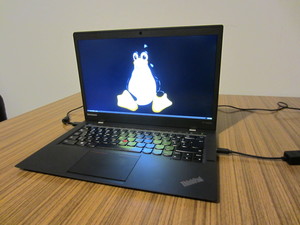Entries tagged as x1carbon
gentoo 3d ac100 addresssanitizer aiglx android asan beryl bufferoverflow c censorship clang compiz compizfusion composite cryptography developer english france freedomofspeech freesoftware gcc gebabbel gps gpsbabel idn iputils josm kde laptop lenovo libressl linux memorysafety merkaartor metacity mobiletrailexplorer nancy notebook openbsd openssl openstreetmap php ping politics rmll security smartbook ssl subnotebook thinkpad tls toshiba ubuntu useafterfree xgl xorg zensur ati bahn cedric debian display fma86t freifunk gatos hardware ibm ice modding modem olpc p30 p35 r300 radeon randr12 samsung steckdose strom t61 tv tvout webradio winmodem wlan benchmark bios cd dvd harddisk license mod optiarc performance sata ssd windows windowsrefund 1und1 4k apache apt artikel assembler augsburg augsburgerallgemeine backnang bash berlin bonn cacert camera canon cardreader ccc ccwn chemnitz chromium cinelerra clt come2linux compression console copyright core coredump cpu cpufreq crash creativecommons cve darmstadt deb delilinux demoscene desktop developingworld distribution dmidecode driver drm eltorito entropia essen esslingen exe fedora ffmpeg firefox frankreich freeculture freedesktop frequencies froscon froscon2007 gadgets gaia games gammu ghost glibc gnokii gnome gnupg google googleearth gpg gphoto gpn gpn5 graphics grsecurity grub gtk hacker hash hddtemp heartbleed homebrew howto hp http ico icons icoutils inkscape installparty iptables iso itu kgtk kubuntu lessig lit07 lm_sensors lpi lpic lspci lsusb ludwigsburg lug luga lugbk macos mandriva md5 memdisk memorystick messe metisse microsoft mobile motherboard movie mplayer mrmcd mrmcd101b multimedia network nokia nouveau nvidia omnibook opengl openpgp overheatd overheating packagemanagement passwörter pciids pcmagazin pcmcia pgp presse programming proxy ptp qt rar redhat reverseengineering ricoh rpm schokokeks sd sdricohcs segfault server sha1 shellshock siegburg signatures smart smartmontools sncf softwarefreedomday squid standards support symlink syslinux talk thesource theunarchiver time unar unicode usability usb usbids utf-8 vc-1 video videoediting vista vortrag vulnerability waiblingen web20 webhosting webinale webroot websecurity webserver wii wiibrew win32codecs wine wmv wos wos4 wrestool zeitung
